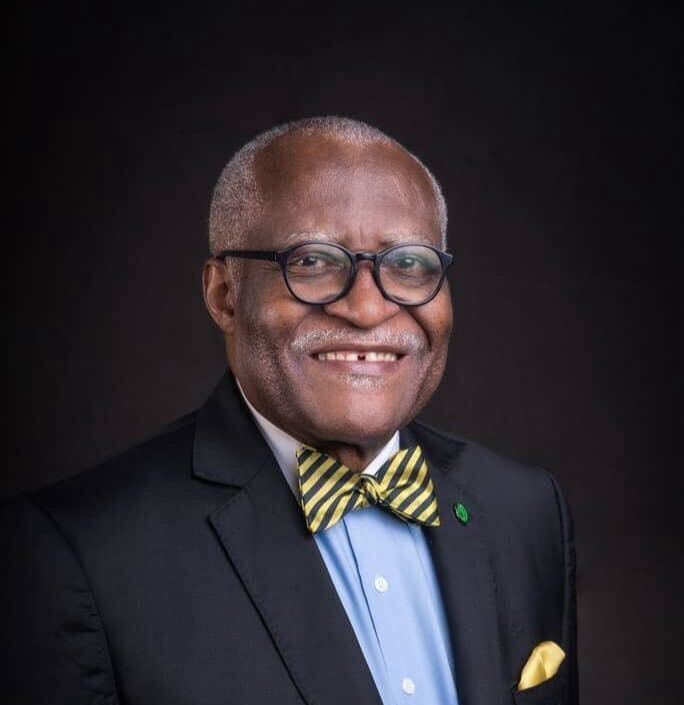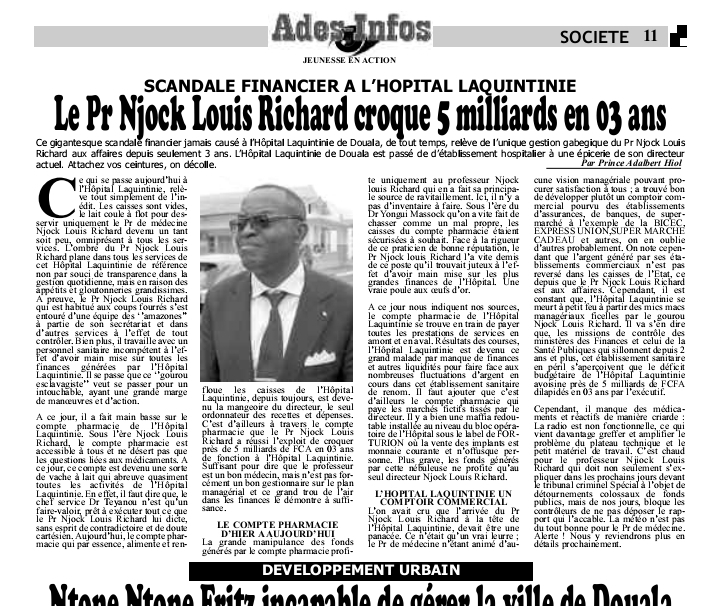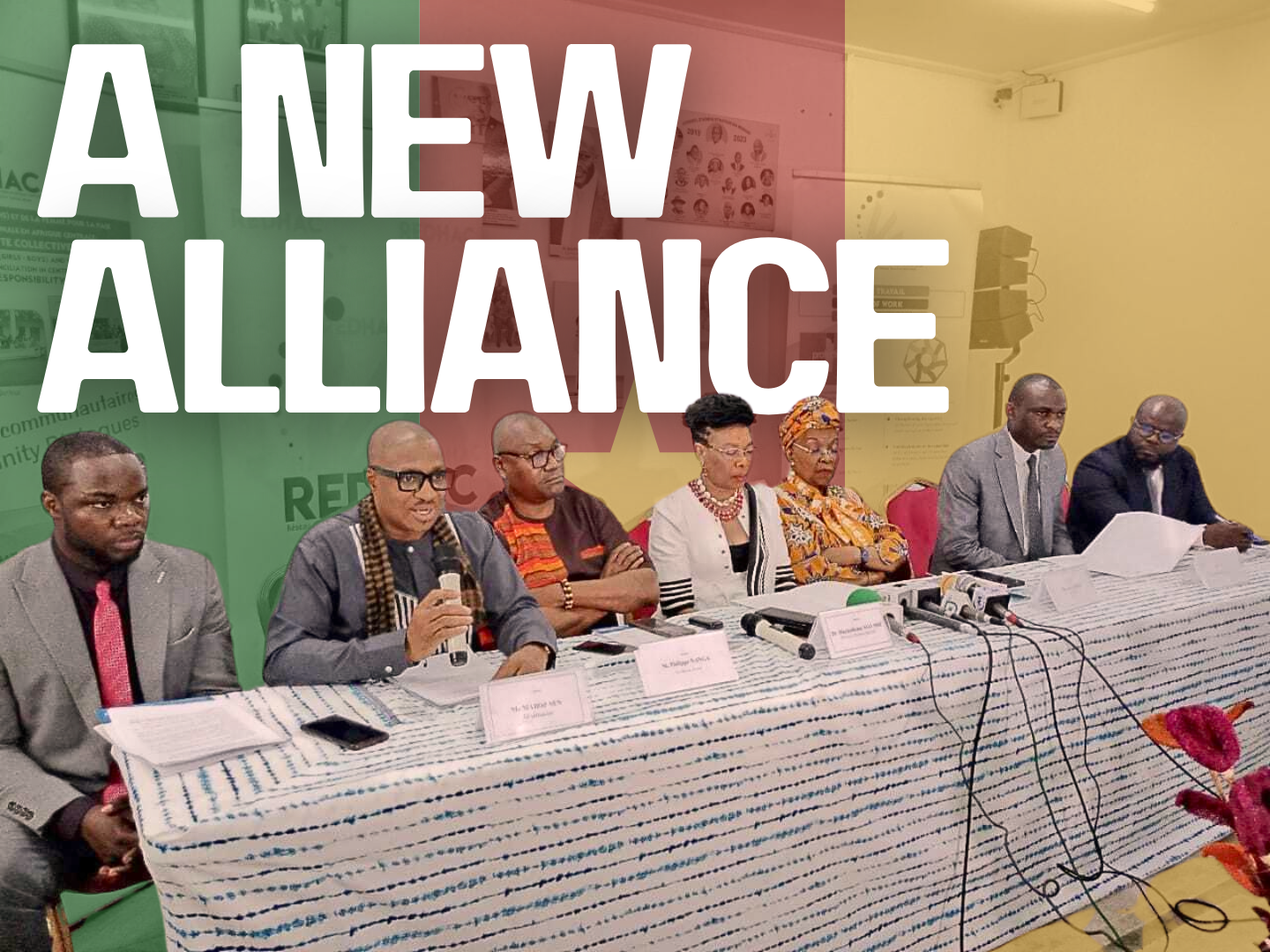A united front between lawyers and activists signals an end to patience with the ‘scandal of today’.
Seated in a betting joint in Douala’s Bepanda quarter, Jorel Njoubissi scrolls through his smartphone and stumbles on the major corruption “scandal of today,” as he calls it—dated 10 March 2025—on the Facebook page of prominent whistleblower and influencer Nzuimanto. He shares his dismay with the other patrons in the shop. “In a normal country, these persons would be behind bars. But the population languishes in poverty while the privileged few milk our rich natural resources,” he states loudly. His audience mutters in agreement.
To vent like this in a betting shop is an increasingly common phenomenon in Cameroon, where people of all backgrounds and ages—often unemployed or earning very little—gather in a desperate attempt to make some money this way.
The revelations are about Glencore
The “corruption scandal of today” concerns two state oil companies involved in extractive deals with Anglo-Swiss multinational Glencore (1). The revelations in the social media post come from a court case in the UK, where, following an investigation by the British Serious Fraud Office, Glencore was penalised for making payments of US$21 million to executives of the Cameroonian state oil companies SNH and Sonara between 2007 and 2014. In exchange, Glencore received a hefty discount on oil purchased from Cameroon. Since the last UK hearing in October 2024, when the penalty was pronounced, the scandal has continued to set tongues wagging—but only among the public. Authorities here, in the country where the natural resource was sold off cheaply for the personal benefit of a few, have remained mostly silent.
Secret names
Cameroon’s Société Nationale des Hydrocarbures (SNH), one of the two state oil suppliers involved, has issued a communiqué stating that the Special Criminal Court—formally responsible for handling corruption cases—should prosecute the implicated officials on its side. However, no further action appears to have been taken. The Special Criminal Court, which exists specifically to prosecute corruption cases, has remained silent, and the names of the implicated officials have been kept secret. Adolphe Moudiki, chair of SNH, has not addressed the accusations again since the initial statement, nor has he launched an internal investigation within the company.
The Special Criminal Court has been silent
It is not always headline news when something like this happens in Cameroon. Oil, gas, timber, gold, cocoa, and other resources have long been sold off in deals that benefit powerful figures within the political and state elite, while the wider population remains impoverished. In the 2024 Transparency International Corruption Perceptions Index, Cameroon ranked 140th out of 180 countries, with 1 being the least corrupt. It’s why Joel Njoubissi, speaking from the betting shop, refers to it as “the scandal of today.”
But what’s new in this case is that the multinational company that received cheap oil in exchange for bribes was held accountable somewhere else in the world. And even if the fine—£280 million—meant little to the giant, it was something.
A rallying cry
The case has since become something of a rallying cry. In April 2023, prominent barrister Akere Muna—also a candidate for an opposition party poised to challenge autocratic President Biya (92) in the upcoming elections—announced that he had referred Cameroon’s state oil companies to public prosecutors on charges of fraud and corruption. He filed charges against SNH at the Wouri and Mfoundi high courts, and similar charges against Somara at the court in Limbe, where the latter’s head office is located. Perhaps predictably, no progress has been made in the courts since. Nevertheless, Muna has continued to make headlines and galvanise civil society protest around the issue.

“Confessed criminals roam our streets”
"The keyword is political will," he says in an interview from his residence in Yaoundé, Cameroon’s capital. "We have the criminals, we have the documents, we have the figures. Confessed criminals roam our streets, and nobody is saying anything. Even as we speak, it is likely that more than a few stalled negotiations and contracts are currently caught in the red tape of bureaucrats whose interests are primarily their own. It cannot continue like this."
COVIDGATE
The indefatigable Philip Nanga, coordinator of the NGO Un Monde Avenir and secretary general of a new platform of civil society organisations and lawyers (see article), still wants to know what happened to the IMF funds of US$275 million, made available some years ago by the entity to fight COVID, but most of which never reached citizens. “The government has not acted against the ministers involved, despite an investigation by the Special Criminal Court. The implicated Manaouda Malachie, Minister of Public Health, and Madeleine Tchuente, Minister of Scientific Research and Innovation, remain in their positions,” Nanga says, explaining the continued campaigning by Un Monde Avenir and other CSOs on this and similar issues. The campaign has included requests to the IMF and the international community not to loan or give aid to the Biya government anymore. The government has responded to the CSOs' demands with the usual appeal to the “presumption of innocence” of the dignitaries involved.
Cabal
Akere Muna is not the only lawyer frustrated by the abuse of the rule of law in Cameroon, where corrupt members of the political elite are allowed to go free, while those who attempt to expose them are jailed—sometimes abducted, disappeared, or murdered (see here on amnesty.org and here on cpj.org). Ironically, in cases involving the powerful, the government routinely grants them freedom under the often-quoted “presumption of innocence until proven guilty.” Meanwhile, journalists who attempt to uncover elite-linked theft and fraud are frequently jailed on charges such as defamation.
Lawyer Fenelon Mahop Sen appears bitter as he recalls the case of a journalist who was jailed for two years on charges of 'defamation' after exposing corruption within the health department. The journalist and publisher, Prince Adalbert Hiol—who is a member of the Bassa royal family and known as 'His Majesty Hiol'—was imprisoned between 2020 and 2022 for an article about Laquintinie Hospital in Douala. The hospital's director had amassed 5 billion FCFA (close to US$8.5 million) in just three years in his post.

Mahop Sen explains that it was nearly impossible to defend the journalist properly because the case was “mostly not even heard.” “The sentence was released within hours; it was fast-tracked,” he says. “This is because all magistrates are used to the fact that it takes just a phone call to twist things and turn the case in favour of whoever is stronger. I saw the influence of a cabal there.”
Lawyers have been attacked too
In the case of 'His Majesty,' nothing untoward happened to lawyer Mahop Sen personally, but lawyers defending human rights have also been targeted. According to a report by Human Rights Watch, in November 2020, security forces deployed tear gas and live ammunition to disperse lawyers in a courtroom in Douala. These lawyers had gathered to protest the arrest of two colleagues accused of corruption. In May 2021, gendarmes in Yaoundé arrested another lawyer, Amungwa Tanyi Nicodemus, on charges of ‘inciting terrorism’ for possessing photographs that documented security force abuses in the country’s marginalised English-speaking regions. In December 2023, police assaulted Walter Tchemi, a prominent human rights advocate, while he was assisting a client.
TikTok
It was the jailing of one activist and the abduction and torture of another, both in July 2024, that prompted lawyers to unite with human rights organisations. Barrister Akere Muna, known for his role in the Glencore affair, took up the case of Junior Ngombe (23), a TikTok influencer, hairdresser, and social media activist after Ngombe was jailed on charges of ‘inciting rebellion and spreading false news’ through his TikTok platform, “Youth Standing for Change”. Ngombe had regularly urged Cameroonian youth to register en masse for elections while criticising the ruling RDPC party. “We are millions of youths (…) suffering under the rule of RDPC for 40 years,” Ngombe stated in a viral (but now deleted) TikTok video. On 24 July 2024, he was arrested by three Secret Service agents without a warrant in front of his barber shop in Douala, then taken to the Military Court in Yaoundé. His arrest sparked outrage, with activists—including 72-year-old Barrister Akere Muna—taking to social media with the hashtag #freejuniorngombe.
The young activist was congratulated for staying in Cameroon
Joining forces with his colleague Serge Emmanuel Chendjou, Muna secured Ngombe’s release a week later. In a statement on X, Akere Muna praised Ngombe for “rightfully expressing his worries and frustrations, as allowed by the constitution” and for staying in Cameroon instead of attempting to migrate. “Despite the challenges he faces, he remains hopeful for a better future in Cameroon,” Muna said. “He has not taken the risks of crossing dangerous territories like the Sahara or the Mediterranean, yet he now finds himself in a precarious situation within his own country. It is concerning that the unpatriotic, corrupt, and greedy individuals involved in the Glencore scandal seem to receive better protection from the state they have captured than a young citizen expressing legitimate concerns.”
On the same day that Ngombe was arrested, news began to trickle in about an even more harrowing rights violation inflicted upon an activist. On 23 July 2024, Ramon Cotta, another TikTok influencer who had been regularly protesting the Paul Biya regime, was abducted from exile in neighbouring Gabon by secret service agents working in collusion with their Gabonese counterparts. The news gained wider attention after Cotta resurfaced in a military jail in Yaoundé during the first days of August 2024, reportedly with ‘marks of torture’ on his body. Among the lawyers who emerged to defend Cotta—who had been charged with being an “accessory to revolution,” as well as with “secession crime,” “illegal acquisition of military weapons,” “insulting state institutions,” and “failure to carry a national identity card” —was Muna’s colleague Emmanuel Chendjou. The case is ongoing, with Cotta still in jail.
Coalition
By then, human rights lawyers and civil society activists had had enough. On 5 August 2024, a coalition of civil society organisations and prominent legal minds held a press conference in Douala, Cameroon’s second city, where they announced the launch of the Platform of Benevolent Lawyers and Civil Society Organisations for the Rule of Law and Consolidation of Democratic Institutions and Peace in Cameroon. Seated at the table with the activists were Maître Mahop Sen and fellow well-known human rights lawyer Richard Tamfu. Akere Muna and his colleagues, though part of the organising team, were absent as they were occupied with the Junior Ngombe case in the capital; during the press conference, Muna called in to announce, amid cheers, that Ngombe had been released.
The news of Ngombe’s release came during the press conference
The coalition, which not only champions human rights but also advocates for accountability for unfit and corrupt officials, includes the indefatigable Barrister Alice Nkom (82) (see box). She has dedicated much of her life to campaigning for justice in Cameroon, alongside the CSOs Un Monde Avenir, the Network of Human Rights Defenders in Central Africa (REDHAC), and the Centre for Human Rights and Democracy in Central Africa (CHRDCA).
Terrorism and rebellion
A practising lawyer for the past 69 years and Chair of the Network of Human Rights Defenders in Central Africa (REDHAC), Barrister Alice Nkom was admitted to the Bar in 1982, the same year President Paul Biya assumed power in Cameroon. On Monday, January 20, 2025, she was summoned for interrogation at the police’s Secretariat of State for Defence, commonly known by the French acronym SED. The summons followed a report filed against her by the 'Observatoire de Développement Sociétal', an organisation widely regarded as a propaganda tool of the Biya government, which described the 82-year-old legal expert as a ‘threat to state security,’ as well as a ‘sponsor of terrorism’ and ‘rebellion.’
REDHAC, together with other CSOs, had earlier been sanctioned by Interior Minister Paul Atanga Nji for receiving ‘unjustified finances’, meaning donations from foreign human rights organisations (see article). REDHAC officials had answered questions about the finance, but the minister had nevertheless requested local administrators to close and seal the offices of REDHAC and other NGOs. The beef with Alice Nkom had ensued when she had immediately cut the seal off the door of REDHAC and opened it again.
"Yes, I removed the seal,” she says in a comment. “But this act was in favour of justice. Only the court, or its authorised agents, can put seals on buildings—not an administrator of (President) Biya.” She has since issued a public statement, saying: “Strength we have when we stand together. Together, united by our faith in justice and our hope for a better future, I know we can do it.”
A continuous fight
The president of the Cameroon Bar, Maître Eric Mbah, has come out in support of the new alliance. In a statement, he noted that the Bar Association will protect the interests of civil society and the rule of law. “Though they are trying to limit our influence, we will not stop fighting back,” he said. “It is a continuous fight.”
Authorities have since retaliated against the CSOs and the affiliated lawyers. In November 2024, platform member Barrister Richard Tamfu was beaten by the police when he attempted to have a client, who had been detained without a warrant, released from custody. When he filed a complaint about this treatment, the case was turned against Tamfu himself. He is now facing trial in the Wouri military tribunal on a charge of "violence against a civil servant".
The CSOs were accused of receiving ‘unjustified finance’
A month after the attack on Tamfu, in December 2024, the government accused REDHAC and several other NGOs affiliated with the platform of receiving "unjustified finance"- a euphemism for foreign human rights donations. It ordered the closure of the NGOs and the sealing of their entrances. The organisations have taken legal action to challenge the move.
With the case ongoing, the Cameroon Bar Association, in March 2025, took the step of calling a nationwide strike in response to the “repeated violence against lawyers by police and gendarmes.” The three-day strike, held between 4 and 7 March 2025, brought courts in the country to a halt, with no lawyers in robes to be seen anywhere.
(1) In 2027, six Glencore officials will stand trial in the UK, accused of conspiring to make corrupt payments to government officials and employees of state-owned oil firms in Nigeria, Cameroon, and the Ivory Coast more than a decade ago.
See the instalments in this Transnational Investigation here:
Legal Rebels | Cameroon, Uganda, Nigeria, Malawi & Ghana
Malawi | Naming and shaming
Nigeria | Breaking up the family
Uganda | Radical rudeness
Ghana | Smaller and bigger victories
Call to Action
ZAM believes that knowledge should be shared globally. Only by bringing multiple perspectives on a story is it possible to make accurate and informed decisions.
And that’s why we don’t have a paywall in place on our site. But we can’t do this without your valuable financial support. Donate to ZAM today and keep our platform free for all. Donate here.


